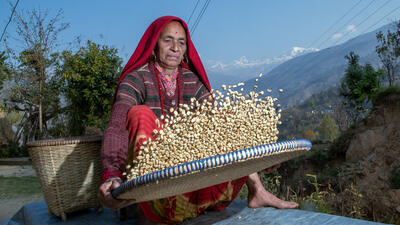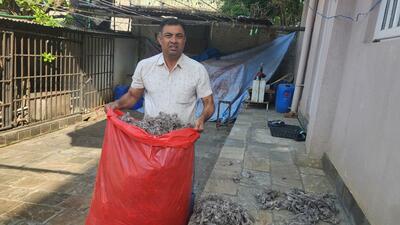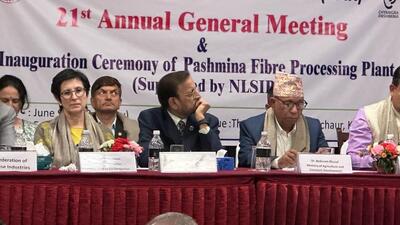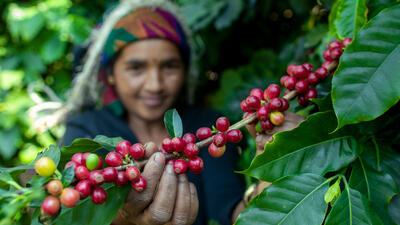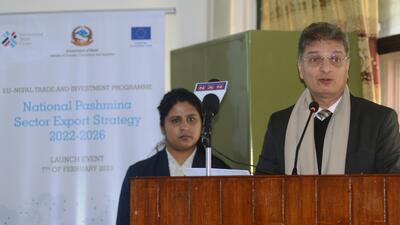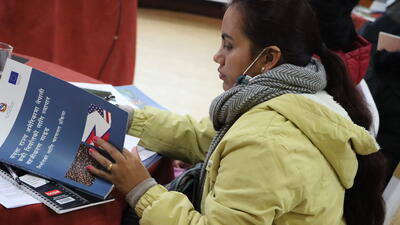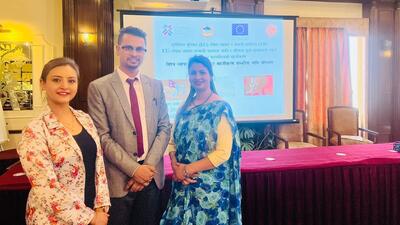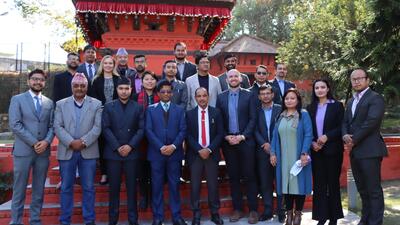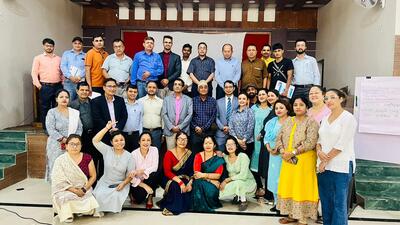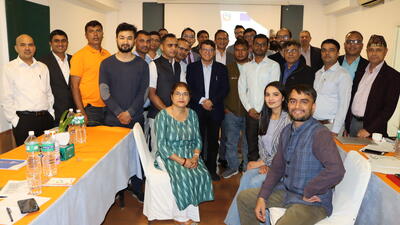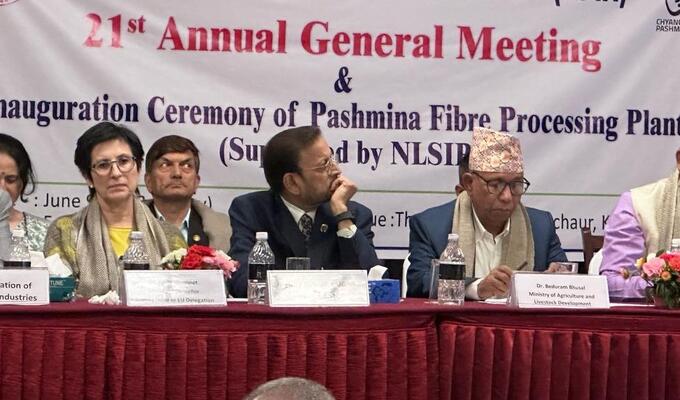
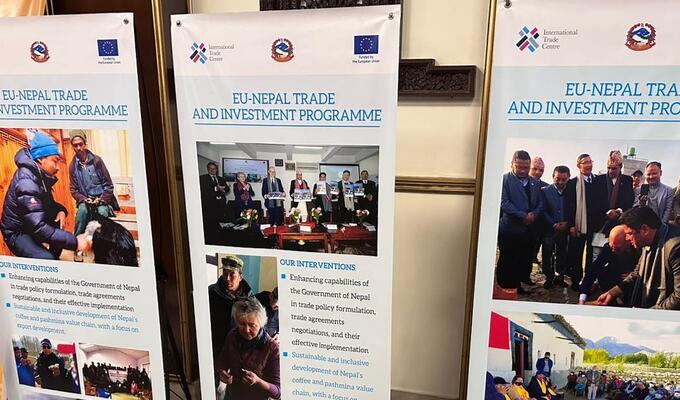
First Pashmina Fibre Processing Plant in Nepal to revolutionize industry
Linking Pashmina farmers to fibre processers will boost exports in Nepal as part of its national sector strategy.
(Kathmandu) – The International Trade Centre (ITC), a joint agency of the United Nations and the World Trade Organization, announces the opening of the first-ever Pashmina Fibre Processing Plant in Bhaktapur, Nepal.
The Pashmina Fibre Processing Plant, made possible through ITC's support, marks a significant milestone in enhancing the market for Chyangra Pashmina fibre and improving its quality, creating a complete value chain for Chyangra Pashmina.
With currently an annual processing capacity of 3-4 tonnes of raw fibre, this facility will revolutionize the Chyangra Pashmina industry by providing state-of-the-art fibre processing techniques and linking Chyangra farmers with Pashmina entrepreneurs.
Through ITC's EU-Nepal Trade and Investment Programme (TIP), funded by the European Union, the Nepal Fibre Processing Pvt Ltd (NFPPL), which is responsible for operating the plant, is able to generate income and employment opportunities for women and youth in remote mountainous districts. Additionally, it contributes to higher export earnings in high-value niche markets, bolstering the region’s economic growth.
During the opening ceremony held on 9 June, the Minister for Agriculture and Livestock Development, Beduram Bhusal, emphasized the importance of strengthening backward and forward linkages within the Pashmina industry: "I am pleased to inaugurate the operation of this processing plant, which is a result of our collaboration with ITC and partners, including the World Bank. This plant will not only link farmers to the processing facility but also contribute to the improved quality and quantity of fibre produced within the country. The government is ready to extend its support to the private sector to strengthen the production and promote Nepal’s export of Chyangra Pashmina."
Joelle Hivonnet, the Deputy Head of the European Union Delegation in Nepal said: “The EU has been supporting Nepal’s economic development for a long time. The EU will also assist Nepal to effectively benefit from the Generalized System of Preference (GSP) Plus trade arrangement as Nepal is scheduled to graduate from its Least Developed Country status by 2026.”
Vijoy Dugar, President of the Nepal Pashmina Industries Association, said: "Through our collaboration, we have successfully connected farmers with the processing plant, and we anticipate a substantial improvement in the quality and quantity of fibre produced within the country."
Vidur Ghimire, TIP National Project Coordinator said: "We are proud to inaugurate Nepal's first Pashmina Fibre Processing Plant, a testament to ITC's commitment. This milestone enhances the Chyangra Pashmina market, empowers local farmers, and revolutionizes the industry. Through ITC's TIP programme, we aim to drive economic growth and strengthen Nepal's export potential in high-value markets."
An ambitious goal as part of Nepal’s Pashmina Sector Export Strategy
ITC has dispatched around 1,300 modern fibre-combing machines free of costs to farmers in the districts of Dolpa, Mustang, and Manang. The goal is to collect around 15 tonnes of Chyangra fibre annually, contributing to the industry’s sustainable growth. The Chyangra population, estimated between 111,600 and 143,000 in 2020, is the sole source of Pashmina fibre.
In addition, ITC had trained Chyangra farmers on modern fibre-combing techniques, supported the opening of a fibre collection centre in Mustang, and conducted research to determine the quality of Chyangra fibres.
The Government of Nepal has recognized the export potential of Chyangra Pashmina, positioning it as one of the key products in the Nepal Trade Integration Strategy. Aligning with this strategy, the recently unveiled National Pashmina Sector Export Strategy (2022-2026) sets a target of increasing the export of Chyangra Pashmina shawls to $75 million by 2026. In 2021, Nepal exported Pashmina products worth $30 million.
About the project
The EU-funded four-year Trade and Investment Programme was launched in February 2020 and assists the Government of Nepal in achieving sustainable and inclusive economic growth and poverty reduction by increasing trade and participation in regional and global value chains. Implemented by the International Trade Centre (ITC), the project also aids the sustainable and inclusive development of Nepal’s coffee and pashmina value chains, with a focus on export development.




